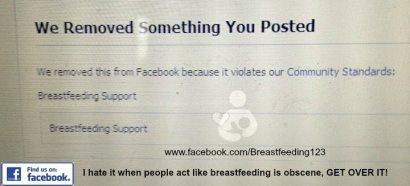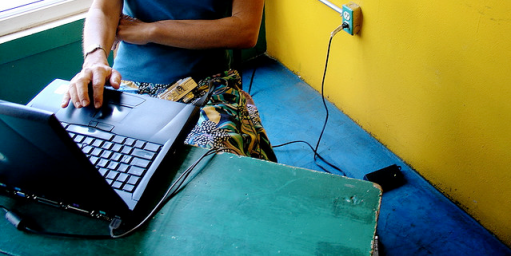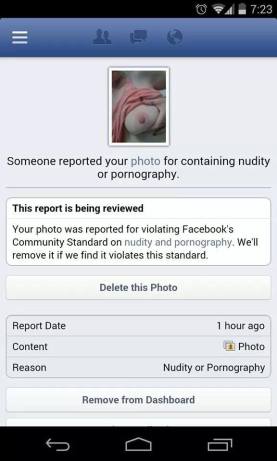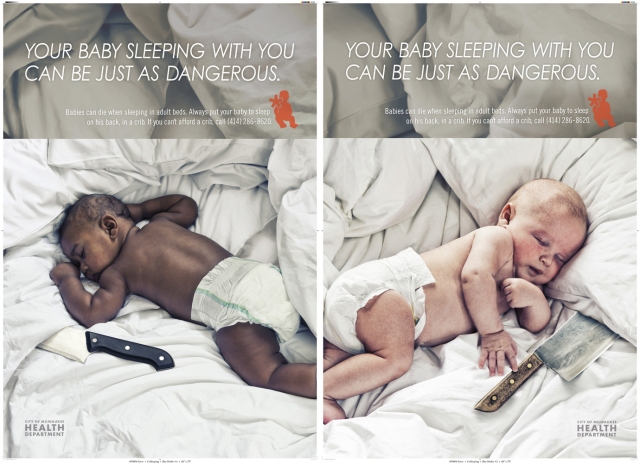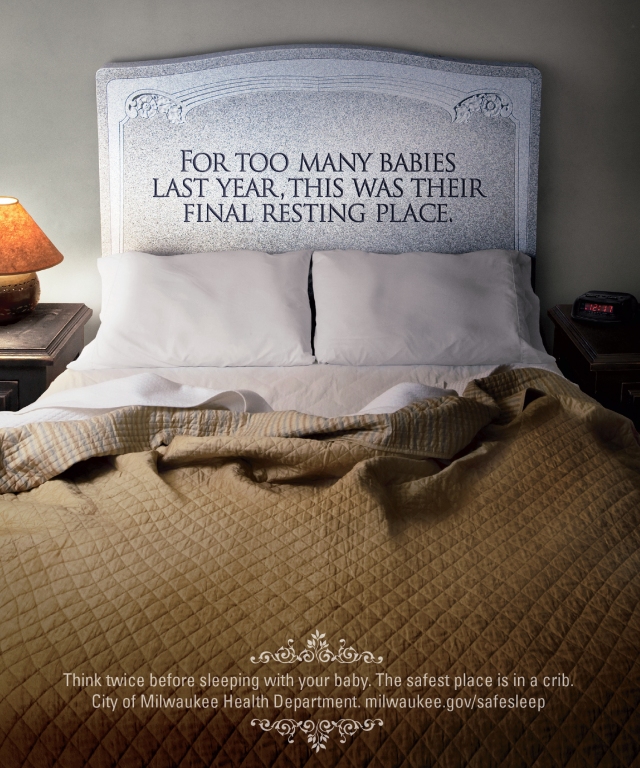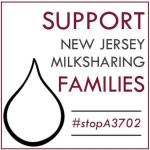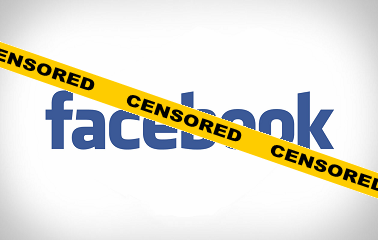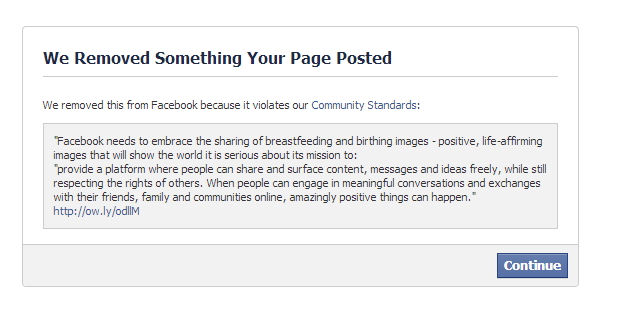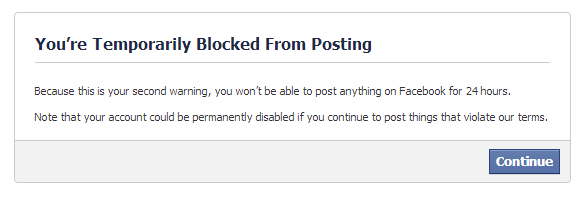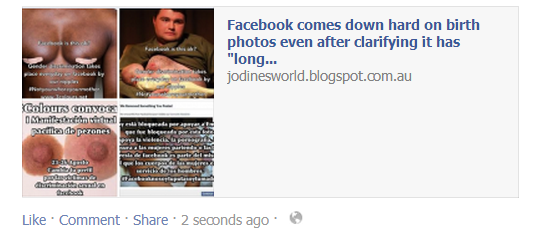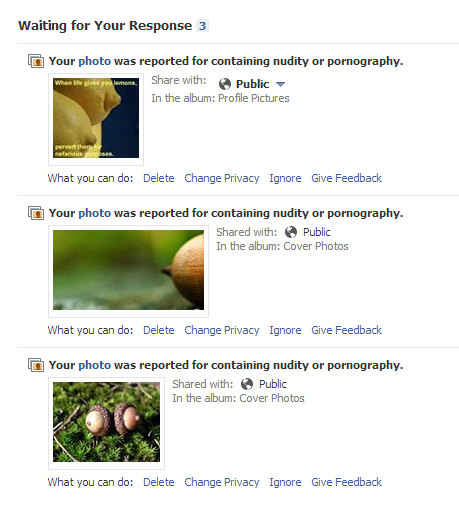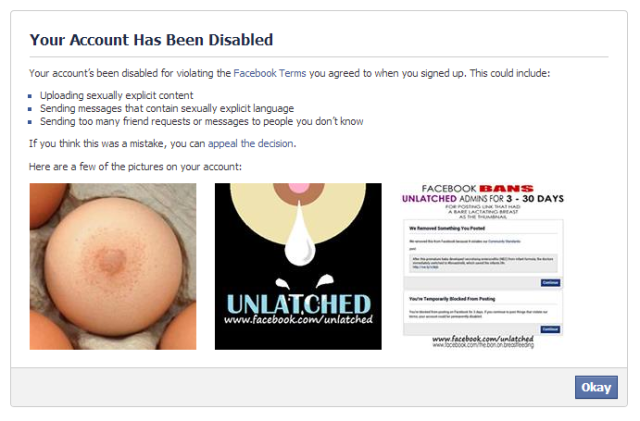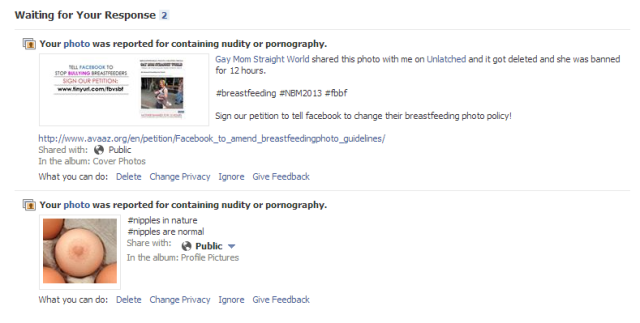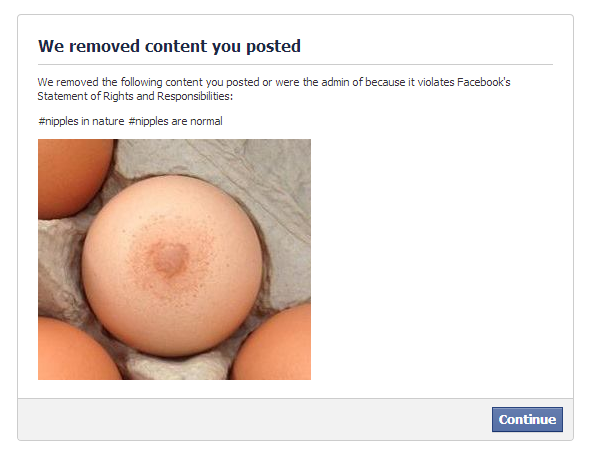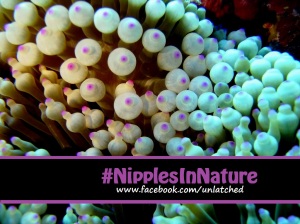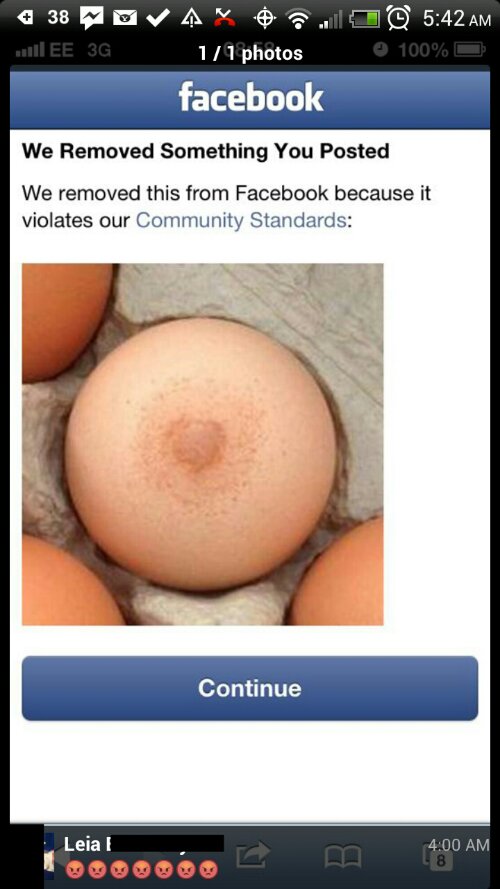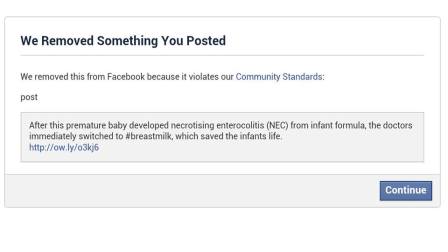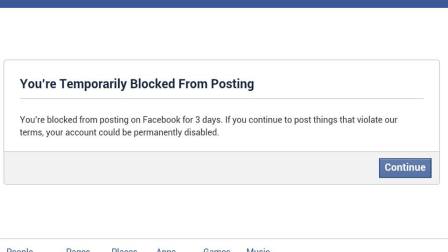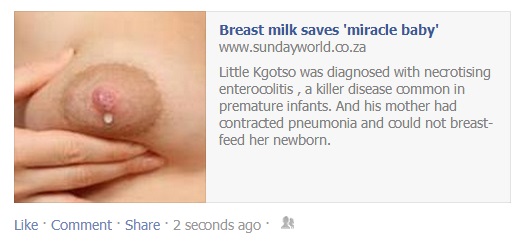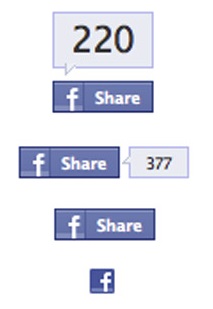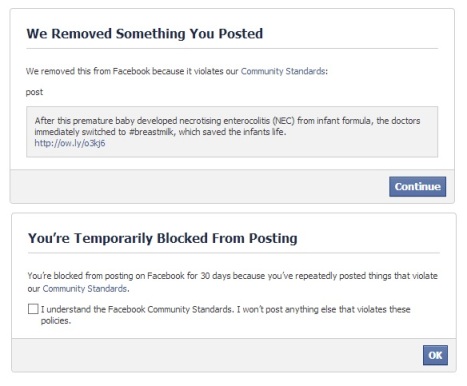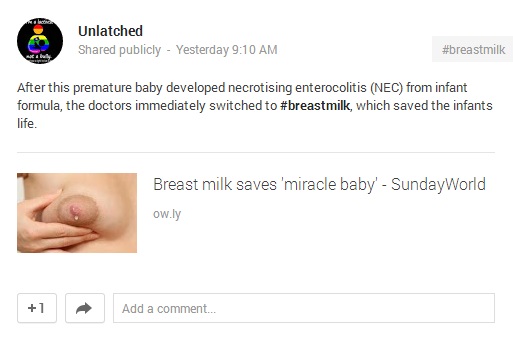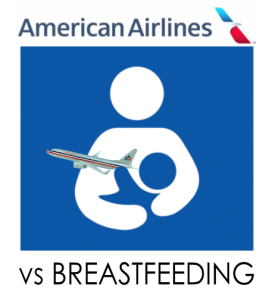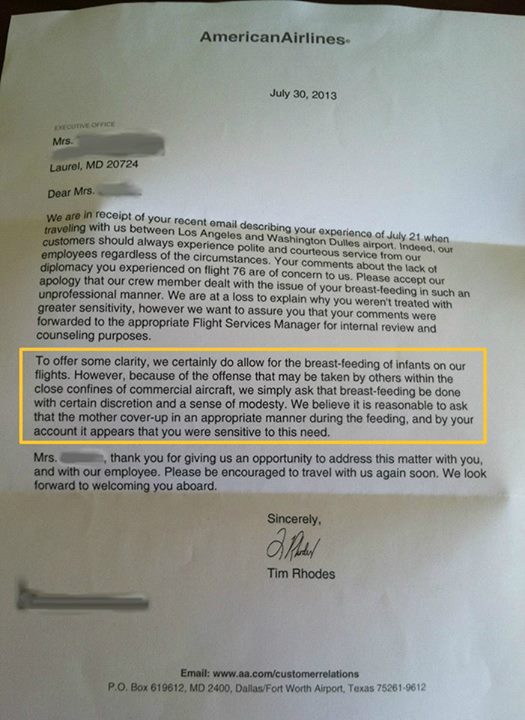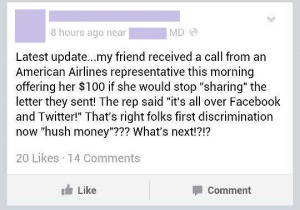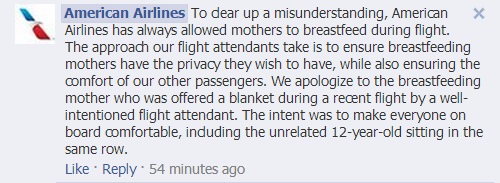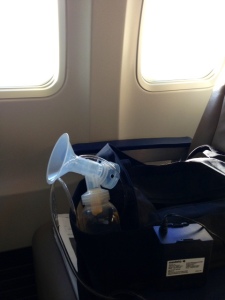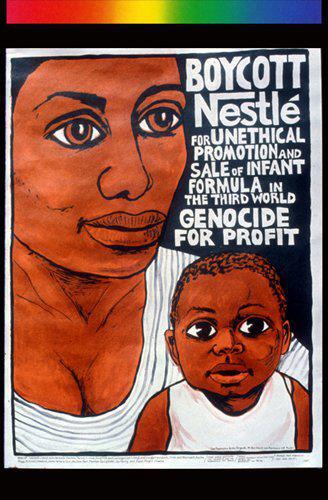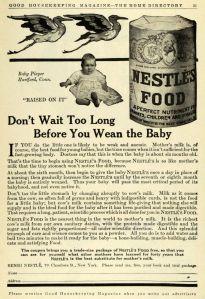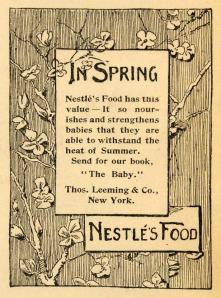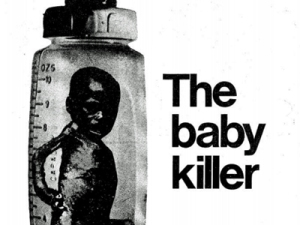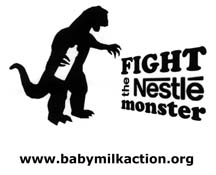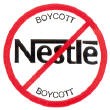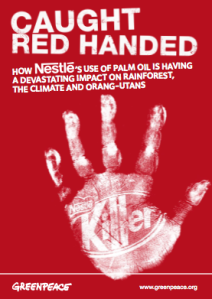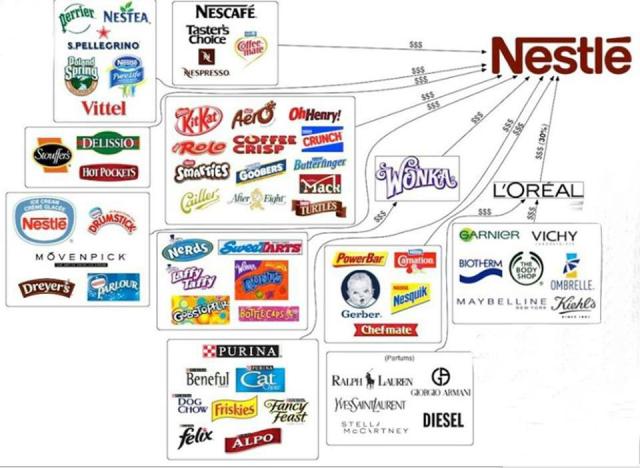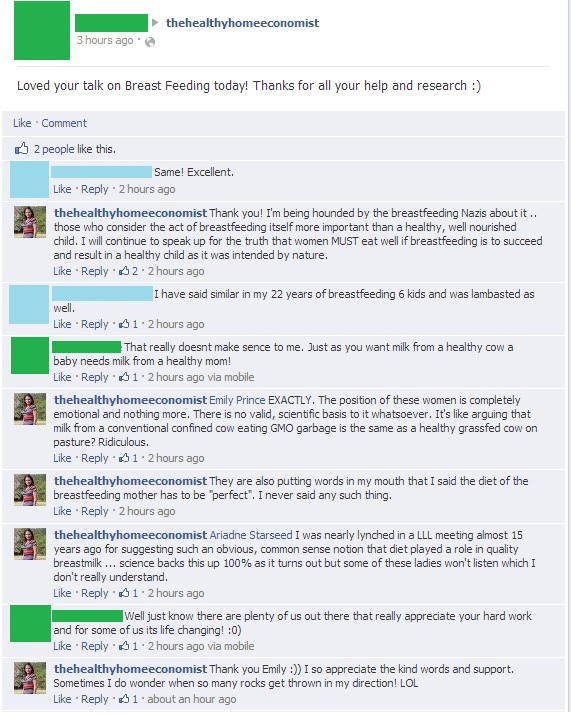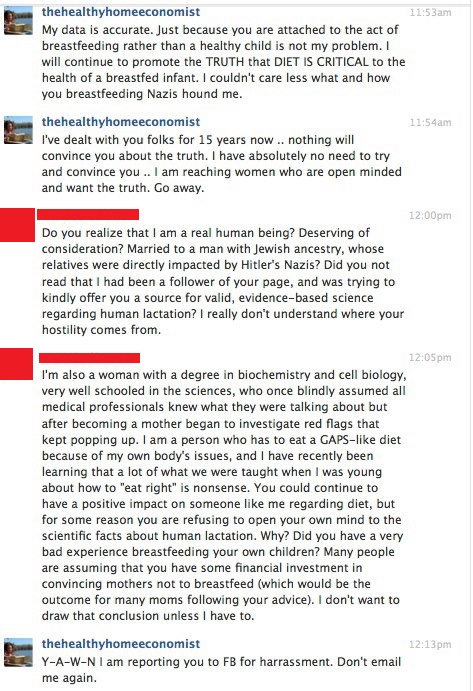The Weston A. Price Foundation (WAPF) is an organization that promotes a diet based on traditional nutrient-dense foods. They have a large following which we examined in my last blog article. Since they are so influential, we must not ignore what they say about breastfeeding. The WAPF has said that they think breastfeeding is important, but I am going to point out ways that their choice of words and information is actually detrimental to mothers who want to breastfeed.
Let’s start by going to the WAPF’s page on breastfeeding, dated December 31, 2001. The title is: “Successful Breastfeeding …And Successful Alternatives”. Producing breastmilk is what our body does in response to pregnancy. Your body produces breastmilk whether you intend to breastfeed or not. It’s just a natural bodily function. You wouldn’t say you were successful at breathing, because it’s just something your body does. The word “success” also places a subjective goal on a biological function. How does one determine if you are successful at breastfeeding? Is it nursing for a certain amount of time? It is also perpetuating guilt because where there’s “success”, there’s also the word “failure”. You don’t fail at breathing if you are having problems, so you don’t fail at breastfeeding. You may have issues and you seek out help, but that never means you succeeded or failed at it. “Success” and “failure” are just words that are perpetuating the “Mommy Wars” and has everyone arguing amongst themselves.
The very next sentence on that page is, “Breastfeeding is best.” This is a widely used phrase that even the formula companies use in their advertisements. But, think about it. If breastfeeding is best, what is ok or normal? That would be using artificial baby milk (formula). Our current culture considers infant formula as normal. But since breastmilk production is a natural biological function, breastfeeding is actually what’s normal. So, by going around saying things like “breast is best”, it’s subliminally giving the ok to use infant formulas since many parents find that the “best” is hard to obtain.
Next, the page goes on to cover “disturbing studies” about breastfeeding and formula. Why did they use the word “disturbing”? How can you go from talking about how “breastfeeding is the best” to talking so negatively about it? The studies they cite are all summarized to show that formula is better than breastfeeding. A quote from their page:
“Our interpretation is the following: the diet of modern American women is so appalling, and their preparation for successful breastfeeding so lacking, that their breast milk provides no better nourishment for their infants than factory-made formula.”
They then go in to talk about all the bad things that may be in breastmilk…spreading more fear and doubt. One sentence was about how a breastfeeding mother eating peanuts leads to allergies in her child. If you look up the study in question, you would see that the sample size was only 23 mothers. You cannot draw a definitive conclusion from a study so small. It does not represent the population. When poor studies are used to support a certain position, confidence in their information starts to crumble.
The next section is about milk supply. I do agree with them that a mother’s concern over her supply is a major reason why many mothers stop breastfeeding, but they only cite diet as a factor in low supply. They state this, referencing the book, Infant and Child Feeding by M G Rowland and A A Paul from 1981:
“The researchers found no correlation between milk supply and frequency of feeding. The main factor was the amount of food available to the mother.”
It is very well known that breastmilk production is based on supply/demand. This image explains it well:
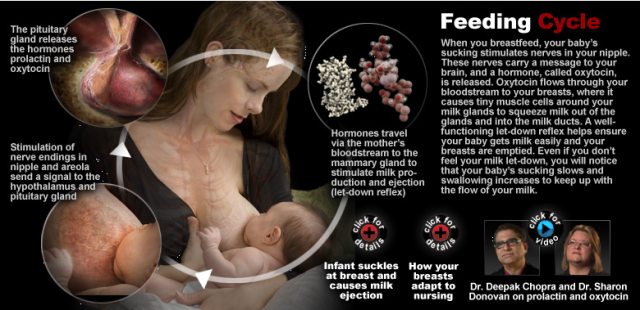
The brain releases oxytocin and prolactin following stimulation of the nipple – both prolactin and oxytocin have important functions in milk ejection and synthesis. Image from: VisualMD.com. For more information check out:VisualMDHealthCenters.
They also fail to mention any other factors that could lead to low supply. Not once are tongue/lip ties discussed, bad latches, bad positioning, etc. ever brought up. They actually say mothers “… know better than any lactation consultant that they do not have enough milk, or that their baby is not happy with the quality of milk that it is getting from her breast.” This sentence attempts to discredit any knowledge or advice that a lactation consultant would offer, alienating mothers from the very professionals that can help with milk supply issues.
WAPF continues on, saying that insufficient milk supply is not rare and “…it’s a wonder that so many nurse successfully at all.” They believe medical professionals and lactation consultants are out to deceive mothers by saying it’s a rare problem – again pushing mothers away from breastfeeding professionals. The Foundation states insufficient milk supply “…is rare in a society of truly healthy people but the western nations are not inhabited by truly healthy people.” So, not only is the WAPF making women think that low milk supply is super common and normal, they are making women feel that it’s their fault for having supply issues.
The page fails to mention donor breastmilk or wet nurses as an option for moms who do struggle with their milk supply. They only explain that cow (or goat) formula is a logical substitute, based on early baby books, saying the early writers were smarter than today’s “experts”. The use of quotes around “experts” is a subtle way of discrediting modern information.
Under the heading: “Tips for Successful Breastfeeding”, you find another quote where they fail to recommend help from an Internationally Board Certified Lactation Consultant (IBCLC) and only suggest their infant formula, “If you have any qualms or fears about not having enough milk, assemble the ingredients for homemade formula…”
There are lots of little sentences like these examples that are placing doubt and fear into the mother’s head. They put in a few helpful tips to make it look like they support breastfeeding, but the overall tone of the article is very negative towards breastfeeding.
Also, look at the article. The word “formula” is in bold and highlighted in yellow. When you scan through the entire article, that is the only thing that jumps out at you. Is this supposed to be a subliminal message?
Recently, a mother contacted the Weston A. Price Foundation on Facebook to see what they currently thought about breastfeeding, since the article on their website is from 2001. Here is what they said on March 29, 2013:
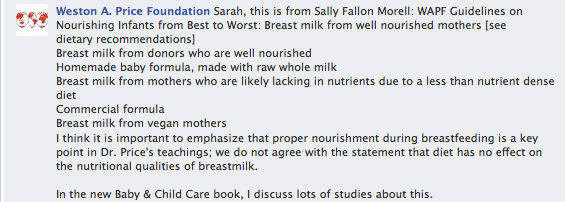
Weston A. Price’s stance on breastfeeding and breastmilk
Note the order and notice the fact that they do not share the studies to support their beliefs, but say that it’s all in their new book, “The Nourishing Traditions Book of Baby & Child Care” which just came out in March 2013.
The book’s chapter on breastfeeding, titled “Nourishing Your Baby”, is pretty much word for word what the WAPF’s site says on breastfeeding with a bit of filler added. It starts with some positive messages about breastfeeding, but by the fourth paragraph, they are already reverting to negative language about breastfeeding: “But for some women, even many women, all does not go well.”
Then they go back to talking about how wonderful breastmilk is with its “amazing qualities” , but it’s quickly followed up by a section entitled “Benefits of Breast Milk: Conflicting Studies” where they again cite the same studies used on their website that show breastfeeding in a negative light.
There is a section on “When Breastfeeding May Not Be Best” and it includes vegan mothers, adopted babies and even babies conceived from in vitro fertilization! See below:
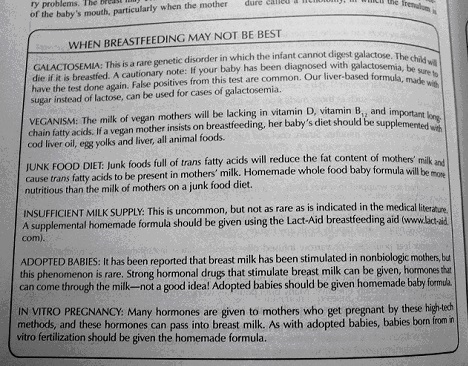
The Nourishing Traditions Book of Baby & Child Care: Chapter 7, page 132
The book gives poor and dangerous advice like an old wive’s tale about preventing cracked and sore breasts with a daily application of rubbing alcohol on the nipples for the last month of pregnancy. They also suggest an herbal supplement for engorgement and oversupply that is known to dry up milk completely, not reduce it.
In the Milk Supply section, they say that if a baby has persistent crying, even after nursing, an inadequate or non-nutritious milk supply should be suspected. To substantiate their claim that low supply is way more common than breastfeeding advocates claim, they reference artwork showing women praying for good milk supplies. They also note that milk volume varies between women, which is true, but then they compare a woman who can squirt her milk across the room to a mother who can’t produce milk while pumping. Those are two different situations and not fair comparisons. Pumping output is no indication of supply.
When they discuss stress as a possible factor for lowered milk supply, they recommend that the environment should be very relaxing. However, they turn this good advice negative by saying, “…for many women, burdened by domestic strife or financial worries, a stress-free environment may be impossible to achieve.”
It’s not until the very end of the Milk Supply section, that they describe the normal behavior of an infant wanting to nurse a lot during growth spurts and the mother’s menstrual cycles. So a mom has to read through all the negative discussions of low milk supply before she sees that her situation is normal and there isn’t an issue with her supply, but doubt is already in her mind. They also recommend using their homemade formula for supplementation during supply drops.
Even when they suggest seeking help from a lactation consultant, they turn it negative by saying “…some consultants can leave mothers in tears.”
Their section on donor milk warns that you need to ask the mother about her diet before accepting milk. They also state that you should observe the donor’s own baby to see that they are “rosy and robust” and not “pale and whiney”. That visual observation will tell you if a mother’s milk is nutrient dense.
They make a completely false statement about breast pumps, too:
“Most importantly, the breast pump provides an accurate picture of how much milk a mother is producing. If, after pumping consistently, mom still only produces an ounce or two of milk per day, she will know for sure that supplementation is an absolute necessity.”
Like I said earlier, pumping output is no indication of supply because it doesn’t get milk out the same way a baby does. It is not as efficient and it could take multiple pumping sessions to obtain the same amount of milk a baby can get out in one breastfeeding session.
When working mothers are discussed, they mention that there are some state laws about pumping at work, but it’s actually a federally mandated law from 2010 that requires employers to provide break time and a place to pump. Unfortunately, the book had to make mention that white collar employees (such as lawyers and editors) would find it easier to pump than teachers and service workers. This gives the impression that full term breastfeeding can only work for women with “good jobs”, and other moms have to use formula, perpetuating an elitist view of breastfeeding.
So, even though the book may have some correct information on breastfeeding, the general attitude is disapproving and negative towards it. Decent advice is tainted by negative opinions and comments. It makes it hard to even consider this book as credible source for breastfeeding mothers. It’s not the empowering book they try to make it out to be. It actually perpetuates guilt.
Continuing with the WAPF’s theme of negative and unhelpful advice on breastfeeding, was Sarah Pope’s recent webinar:“Is Breast Really Always Best?’ Pope is a chapter leader and Weston A. Price Foundation board member. She also runs the Healthy Home Economist blog and Facebook page. The webinar’s description was:
“Breastfeeding is critical for baby’s health, but only if the mother is eating a nutrient-dense diet. Learn how to eat for your baby’s optimal health, and what to do if you can’t breastfeed.”
In my last blog article, I covered what happened when a few breastfeeding advocates expressed concern over her language, but let’s examine the webinar itself.
Pope starts by talking about her history with breastfeeding, but then jumps right to being negative about breastfeeding by sharing her observations:
“…breastfed kids really weren’t that healthy looking. They were pale…they had really crooked teeth…they just didn’t look well at all. In fact, a lot of times, they didn’t look any healthier than the kids that were on the commercial formula.”
She goes on to say that she’s a “common sense observation orientated person”. But common sense is not science based. The entire video just comes off as a big opinion piece and an attack on breastfeeding.
“To me it was complete common sense that what a woman would eat would affect her breastmilk. I’m a computer programmer in my background and we have this thing in computer programming – garbage in garbage out, and to me it was the same thing. Whatever you put in your mouth, if it’s garbage, your breastmilk is going to be garbage.”
Without even looking at her dietary comments, just examine the language she is using. Is it positive? Is it supportive or empowering? No, it’s insulting to breastfeeding women. It’s offensive and inflammatory. Encouraging a healthy diet is great, but don’t attack and put down women who struggle with it. She is just piling on the guilt.
Explaining that she breastfed her children for 2-4 years, Pope labels herself as a huge breastfeeding advocate. However, that doesn’t mean you are an expert on breastfeeding. She even makes the comment that she wants to make sure she states that she’s an advocate because she’s going to make controversial statements, as if giving that disclaimer makes the comments ok.
She takes a dig at breastfeeding advocates, nursing while pregnant, and tandem nursing by again saying common sense told her it wasn’t a good idea. She negates all the information that’s out there saying that says it’s usually ok and safe to breastfeeding while pregnant and to tandem feed, by giving her own opinion on the matter without providing studies backing it up. She continued by saying traditional cultures never practiced it.
Pope explains that traditional cultures have always relied on the milk of other mammals to nourish them when breastmilk wasn’t available. She brings up a mummified infant found with a primitive baby bottle as an example. What she fails to discuss is that wet nurses were very important in traditional cultures and that babies fed animal milks tended to die early on or they experienced severe health problems without breastmilk.
In the discussion of what a mother can do if she is struggling with breastfeeding, seeking help from a breastfeeding professional (IBCLC, etc) is never suggested. Pumping breastmilk to have a backup supply is also never brought up. Pope feels it’s just important to always have the ingredients on hand to make the homemade formula in case of an emergency.
Pope dismisses donor milk as a viable option for mothers. She feels that it’s only an option if the breastmilk came from a close group of friends where you know their diet. She says it’s very rare to have that option available to mothers. Breastmilk from a milk bank is not recommended because she feels that it destroys the good stuff in the milk through pasteurization.
So what is up with all the negative information about breastfeeding? Why has the Weston A. Price Foundation continued for YEARS to spread this misinformation and fear? Why do they push their homemade infant formula so much?
Without even examining the Weston A. Price Foundation’s dietary claims, I have clearly shown that they are not the breastfeeding advocates or supporters that they say they are. I don’t understand how an organization which is all about traditional foods can talk so disparagingly about nature’s traditional food for babies. Without providing proper information and support, they are failing breastfeeding mothers.
